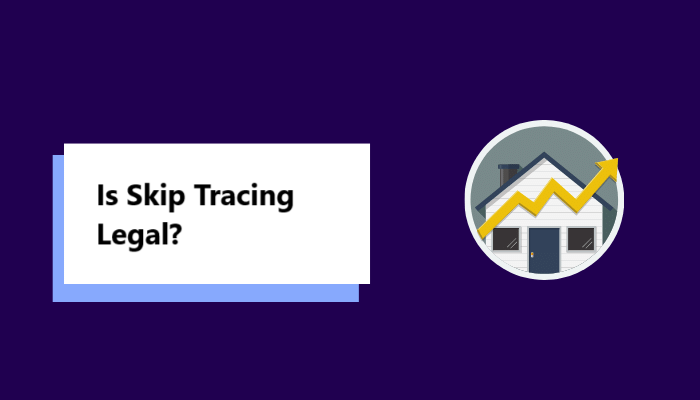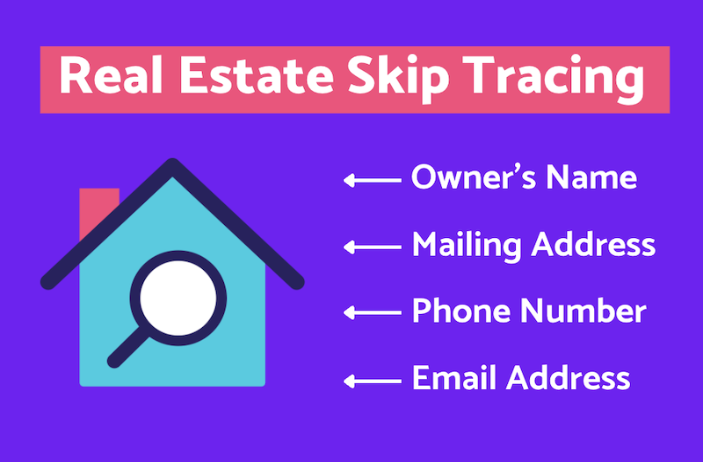Is Skip Tracing Legal? A Comprehensive Guide 2025

Is Skip Tracing Legal? A term used frequently in industries like debt collection, private investigation and court hearings is skip tracing. Is it what it is, and is it a legally permissible practice? This article – which touches on what else should be not touched on – is both to acknowledge and try to answer the question of what is skip tracing and when and how should it be done legally, and vis-a-vis ethics. At the end of this guide, you will have a thorough understanding about what is skip tracing, which laws apply to it, and how it works in several industries. For more information related to skiptracing visit our website: www.skipeazy.com
Understanding Skip Tracing
Skip tracing means the process of seeking an individual (deceitfully or unselfconsciously) disappeared or deleted from his existence, usually in order to escape financial obligations, legal duties, or other commitments. “Skip” means the person missing and “tracing” is the process of finding the person that has gone missing. Skip Tracing is used by professionals like debt collectors, private investigators, bail bondsmen and law enforcement agencies to locate people. The skip tracing method could be simple or complex; there could be an online search or even an investigative technique. This could involve the use of public records, the use of a database that is specialized, or interviews of associates, acquaintances or even contacts of the person you are attempting to trace.
Further we will discuss skip tracing software on our website and also how to do free skip tracing
The Significance of Skip Tracing
skip tracing real estate happens in a variety of industries. It also helps debt collectors recover unpaid debts. It is used by private investigators to find missing persons and witnesses. Skip tracing is necessary in legal settings to serve court documents, locate missing defendants who need to be present in court, etc.
While it’s still very useful, some of that has come at the cost of controversy’s which has to do with privacy violations. It is well understood that ethical boundaries must be respected and there are some legal limitations in the regulation of how and when skip tracing can be done. Focusing back now to the most important question, which would be: Is skip tracing legal?
The Legal Aspects of skip tracing service

Some simple and original legal aspects of skip tracing are as follows.
Privacy Laws
Considering that skip tracers must comply by privacy regulations and do not use, access and misuse personal data within the scope of the law.
Consent & Authorization
In other words, there are certain databases and financial records where a person’s consent is mandated before access.
Fair Debt Collection Practices
For debt collection, if skip tracing is used as a technique it is obliged to follow the rules to avoid harassing or deceiving the debtor.
Use of Public Records
Legal skip tracing consists of legal research, conduct through the use of public documents from government agencies and courts, for example property records, court documents, business registrations.
Prohibition of Impersonation
Skip tracers cannot pretend to be law enforcement personnel, government employees or some other type of entity to get information.
Third-Party Contact Rules
Skip tracers, when contacting acquaintances of a subject, should not trick or pressure third parties for their information.
Regulated Database Access
Restrictions are placed on some databases and it is not possible to make use of the database freely, as some databases are not permitted without necessary licensing or valid legal authorization.
Do Not Call & Harassment Laws
Skip tracers need to ensure they do not violate limits on ‘excessive or unwanted contact, such as Do-Not-Call lists. Skip tracing laws differ from region to region, so it is important to follow state or country specific legislations.
Ethical Responsibility
Although it is possible to have information, it does no good if one cannot use this information responsibly and ethically, or legally.
Ethical Considerations in Skip Tracing
skip tracing cost on the other hand is legal but comes with ethical concerns, specifically, privacy and consent. Being a skip tracer can involve dealing with sensitive personal information akin to raising some ethical dilemmas around how to get it and use it.
Consent and Transparency
Consent is one of the most pressing ethics concerns. Evidently, most people being tracked do not know their data is being used. And this is where ethics becomes important; ethical skip tracers should be transparent and, if at all possible to gain consent.
Data Security and Protection
Data security is also another ethical consideration. Handling highly sensitive information as a skip tracer is an essential step of using good and secure data storage and transmission procedures. In skip tracing, the ethical obligation is to protect personal information from unapproved access.
Common Skip Tracing Methods
Using some investigative techniques, it is a simple and widely available operation, while other techniques calling for specialized tools and expertise would be required. I will just list few of the methods that are commonly used below:
Public Records Searches
Skip tracers can legally get access to information contained on public records. Are of property ownership details, court records, marriage and divorce records and other such publicly available documents. Using public records for skip tracing is legal, because they are open records, and it is an ethically acceptable method of skip tracing.
Social Media and Online Searches
Social media platforms and search engines are used for skip tracing. That’s why many people release personal info online that you can trace people easily. However, before using any of this information for further skip tracing, skip tracers must be careful not to break laws pertaining to privacy
Interviews and Surveillance
The skip tracers themselves often have the opportunity to do interviews with the person’s family, friends, and neighbors as well. Movements can also be monitored with surveillance techniques. If these methods do work, they must follow the law or else they’ll get accused harassment or it’s like they’re invading of personal privacy.
FAQs
Conclusion
Skip tracing, as the name suggests, is widely used throughout various industries to trace people who have gone missing for financial, personal or legal reasons. It’s legal in most instances and in line with federal and state regulations such as FDCPA, GLBA, and DPPA.
In responsible skip tracing, ethical considerations are also crucial. Allowing professionals to balance the need to find people against the duty to protect privacy, security, and transparency. Legal skip tracers have their work cut out to utilize proven legal methods — public record searches, online searches, credit reporting analysis, and interview reports — with legal precision as if every corner of that world is marked with a giant mark of legality. Understanding the legal and ethical concerns associated with skip tracing allows us to do so and at the same time practice responsibly and properly.






